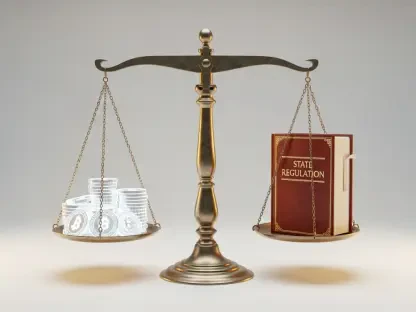Imagine a teenager in Idaho, overwhelmed by emotional turmoil from bullying or family conflict, reaching out to the 988 Crisis and Suicide Hotline for help—only to hang up, unable to secure parental permission due to a strained home environment. This heartbreaking scenario is a reality for many young people in the state following the enactment of a new law on July 1, 2024. Senate Bill 1329, designed to reinforce parental rights over medical decisions for minors, has inadvertently erected barriers to critical mental health support. The significance of this issue lies in the urgent need for accessible crisis intervention for youth, a demographic particularly vulnerable to impulsive decisions during emotional distress. This summary delves into the impact of the law, exploring how it restricts access to a vital lifeline and examining broader implications for adolescent well-being.
Unveiling the Crisis: Idaho’s Parental Consent Law and Its Impact
Senate Bill 1329, implemented in mid-2024, mandates parental consent for nearly all medical treatments provided to minors in Idaho. While the legislation aims to empower parents, an unintended consequence has emerged: it severely limits youth access to the Idaho 988 Crisis and Suicide Hotline, a critical resource for those in emotional distress. Many young callers, unable to involve a guardian due to family tensions or other barriers, are forced to abandon their pleas for help, leaving them isolated in moments of crisis.
The scale of this challenge is stark, with over 1,500 callers aged 5 to 17 contacting the hotline in a single year since the law’s introduction. These youth face significant hurdles, often hanging up when consent cannot be obtained, while hotline staff grapple with the emotional toll of being unable to assist. The distress extends beyond the callers to the responders, who feel powerless under legal constraints. This raises pressing questions: How does such a law reshape mental health crisis intervention, and what are the long-term consequences for vulnerable adolescents in Idaho?
Background and Significance of Youth Mental Health Access
The Idaho 988 Crisis and Suicide Hotline serves as an essential lifeline for young individuals wrestling with issues like bullying, academic stress, and family discord. For many, it represents a safe space to voice struggles they cannot share at home. Adolescents, in particular, are at a developmental stage where emotional regulation is still maturing, making timely support crucial to prevent escalation of crises.
Given this vulnerability, early intervention in mental health emergencies can be life-saving. Senate Bill 1329 was originally crafted to safeguard parental authority over medical decisions, a principle valued by many. However, the urgent societal need for accessible crisis support for youth often clashes with such restrictions, highlighting a complex balance between family rights and the immediate needs of minors.
The debate surrounding this issue underscores a broader concern: ensuring that protective laws do not inadvertently harm those they aim to shield. As mental health challenges among youth continue to rise, the importance of unhindered access to resources like the 988 hotline becomes ever more apparent, prompting a reevaluation of how policies impact real-world outcomes.
Research Methodology, Findings, and Implications
Methodology
To assess the impact of Senate Bill 1329, this analysis draws on comprehensive data regarding hotline usage, documenting over 1,500 calls from youth aged 5 to 17 within a year following the law’s enactment. This quantitative evidence provides a clear picture of the scale of affected individuals. Additionally, qualitative insights were gathered through interviews with key stakeholders, including Lee Flinn, Director of Idaho 988, and Alexander Copple, a former hotline responder, whose firsthand accounts illuminate the human cost of these barriers.
Further depth was added by incorporating perspectives from legislative sponsors such as Rep. Barbara Ehardt and Senate President Pro Tempore Kelly Anthon, alongside voices from children’s advocacy groups. These diverse viewpoints offer a balanced understanding of both the intent behind the law and its unintended repercussions. The methodology combines statistical analysis with narrative evidence to ensure a holistic evaluation of the policy’s effects on crisis intervention services.
Findings
The evidence reveals significant obstacles created by the law, particularly the requirement for parental consent, which leads many minors to disconnect from calls when unable to involve a guardian. The legal definition of a medical emergency—limited to situations preventing imminent death or severe injury—excludes many serious mental health crises, preventing staff from offering essential follow-up care. This restriction leaves youth in non-immediate but critical situations without adequate support.
Beyond hotline access, the law imposes additional burdens, such as limiting minors’ ability to receive sexual assault exams without parental approval, even in cases where a family member may be the perpetrator. Legislative efforts to address these unintended effects during the current year’s session failed to advance, despite recognition from sponsors that amendments are necessary. Such barriers highlight a systemic issue in how the policy disrupts timely health interventions for young people.
Hotline staff report profound frustration, as they are often forced to end conversations prematurely, unsure if the caller will find help elsewhere. This not only impacts the youth but also places an ethical burden on responders, who are trained to prioritize safety but are constrained by legal limits. The findings underscore a pressing need for policy adjustments to mitigate these adverse outcomes.
Implications
The potential risks to youth well-being are substantial, as delayed or denied mental health support can exacerbate crises, particularly for adolescents in emotionally volatile states. For those facing serious but not immediately life-threatening issues, the lack of intervention may lead to worsening conditions, with long-term consequences for their mental and emotional health. This gap in care poses a significant public health concern.
On a societal level, the law creates a chilling effect on health care access for minors, discouraging them from seeking help due to fear of parental involvement or legal barriers. Hotline responders, meanwhile, face increased strain as they navigate ethical dilemmas, torn between their duty to assist and the constraints of the law. This tension illustrates a broader policy conflict between safeguarding parental rights and ensuring youth safety.
Addressing this issue requires legislative clarity to carve out exceptions for mental health crises, ensuring that crisis intervention remains accessible. Without such changes, the state risks undermining the very support systems designed to protect its most vulnerable population. The implications call for a nuanced approach to policy-making that prioritizes both family dynamics and urgent care needs.
Reflection and Future Directions
Reflection
Implementing a law intended to protect parental rights has proven challenging when it results in harm to vulnerable youth, revealing the complexity of balancing competing interests. The emotional and ethical struggles of hotline staff, who are limited by legal constraints, paint a vivid picture of the human toll of such policies. Their inability to fully support callers in distress often leaves lasting frustration and concern for the well-being of those they serve.
Advocates, too, express exasperation as reform efforts stall, despite widespread acknowledgment of the law’s unintended consequences. This situation highlights gaps in fully understanding how the policy affects other health services beyond the hotline, such as routine care for minors. Deeper analysis of these broader impacts could strengthen arguments for legislative change, providing a more comprehensive case for urgent action.
Examining the intricacies of the law’s application also reveals a need for clearer guidelines that prevent misinterpretation or overly broad enforcement. The ongoing debate reflects a critical juncture for Idaho, where the protection of youth must be weighed against the principles of parental authority, necessitating thoughtful dialogue among all stakeholders.
Future Directions
Further research should focus on the long-term effects of restricted hotline access on youth mental health outcomes in Idaho, tracking trends over the coming years to assess the true scope of impact. Such studies could provide valuable data on whether barriers lead to increased rates of untreated crises or other adverse effects, informing future policy decisions.
Comparative analyses with states that lack similar consent laws could also offer insights into differences in crisis intervention effectiveness. Understanding how other regions manage youth access to mental health support might reveal best practices that Idaho could adopt, tailoring solutions to local needs while prioritizing accessibility.
Legislative efforts in the upcoming 2026 session should prioritize specific exemptions for mental health crises, ensuring that hotline staff can respond without legal hindrance. Broader clarifications to the law are also needed to address unintended barriers across various health services, creating a framework that safeguards both parental rights and the immediate safety of minors. These steps are essential to prevent further harm and rebuild trust in crisis support systems.
Concluding Thoughts: Balancing Rights and Urgent Needs
Reflecting on the impact of Senate Bill 1329, it becomes evident that the law significantly hinders youth access to the 988 hotline, creating urgent barriers to crisis support that demand resolution. The findings underscore the developmental needs of adolescents and the severe risks posed by delayed intervention, painting a troubling picture of a policy misaligned with its protective intent. Moving forward, actionable steps must include targeted legislative reforms to establish clear exemptions for mental health emergencies, ensuring that no young person in distress is turned away due to legal constraints. Additionally, fostering collaboration between lawmakers, mental health professionals, and advocates could pave the way for innovative solutions, such as confidential support mechanisms that respect both family dynamics and individual needs. Ultimately, Idaho stands at a crossroads, tasked with harmonizing parental authority with the pressing safety of its youth through informed, compassionate policy adjustments.









